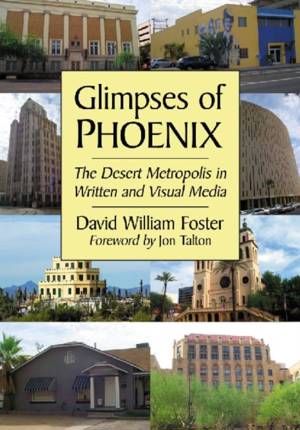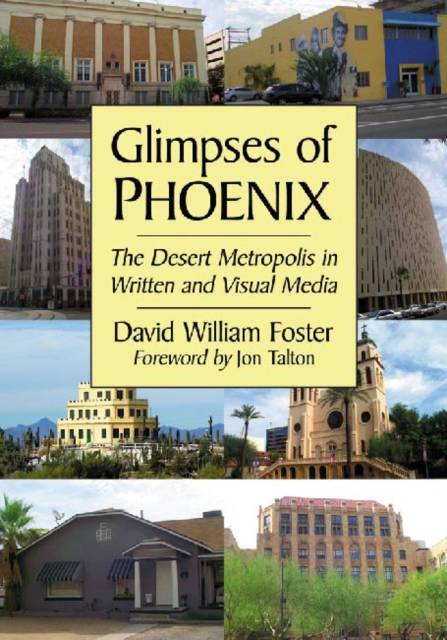
- Afhalen na 1 uur in een winkel met voorraad
- Gratis thuislevering in België vanaf € 30
- Ruim aanbod met 7 miljoen producten
- Afhalen na 1 uur in een winkel met voorraad
- Gratis thuislevering in België vanaf € 30
- Ruim aanbod met 7 miljoen producten
Glimpses of Phoenix
The Desert Metropolis in Written and Visual Media
David William FosterOmschrijving
Part of the self-image of Phoenix is that the city has no history and that anything of importance happened yesterday. Also that Phoenix, the Arizona state capital, is a "clean" city (despite a past of police corruption and social oppression). The "real" Phoenix, easygoing, sun-drenched, a place of ever-expanding development and economic growth, guarantees, it is said, an enviable lifestyle, low taxes, and unfettered personal freedom and opportunity.
Little of this is true. Phoenix has been described as one of the least sustainable cities in the country. This sixth largest urban area of the United States has an alarmingly superficial and tourism-oriented discourse among its leaders. This book examines a series of narrative works (novels, theater, chronicles, investigative reporting, personal accounts, editorial cartooning, even a children's television program) that question this discourse in a frequently stinging fashion. The works examined are anchored in a critical understanding of the dominant urban myths of Greater Phoenix, and an awareness of how all the newness, modernity and fun-in-the-sun mentality mask a uniquely dystopian human experience.
Specificaties
Betrokkenen
- Auteur(s):
- Uitgeverij:
Inhoud
- Aantal bladzijden:
- 208
- Taal:
- Engels
Eigenschappen
- Productcode (EAN):
- 9780786473649
- Verschijningsdatum:
- 1/05/2013
- Uitvoering:
- Paperback
- Formaat:
- Trade paperback (VS)
- Afmetingen:
- 150 mm x 226 mm
- Gewicht:
- 294 g

Alleen bij Standaard Boekhandel
Beoordelingen
We publiceren alleen reviews die voldoen aan de voorwaarden voor reviews. Bekijk onze voorwaarden voor reviews.











